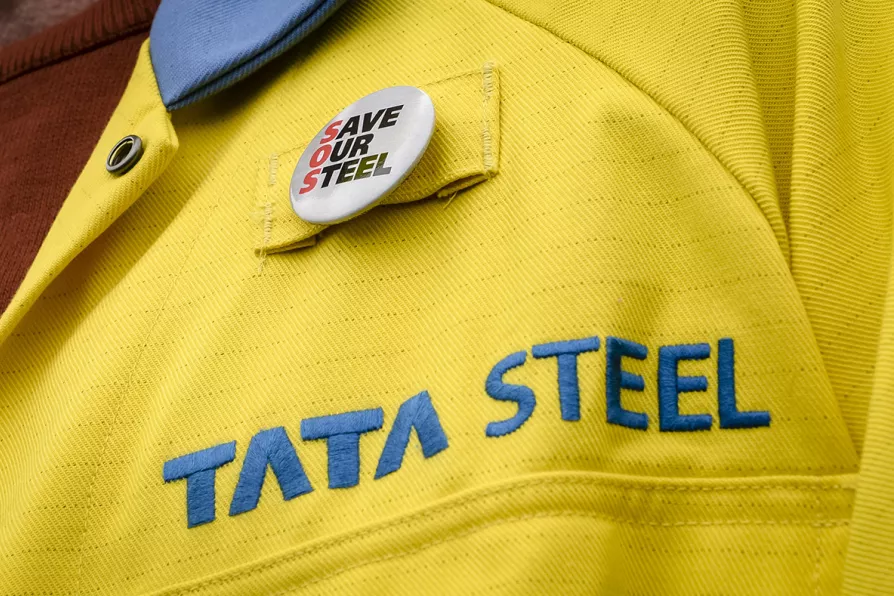
 A steelworker wearing a badge on his jacket outside the UK's largest steel works in Port Talbot, South Wales
A steelworker wearing a badge on his jacket outside the UK's largest steel works in Port Talbot, South Wales
WE NEED action on the steel industry, we need it now, and while the UK and Welsh governments are proving too tentative to rock the boat, Tata is capsizing it.
In January, Tata rejected the multi-union Syndex plan, citing concerns about the additional costs and expressing doubts — which haven’t been given the scrutiny they deserve — about the viability of keeping the existing plant operational while constructing new facilities alongside it.
Moreover, despite meetings with various politicians, including shadow business secretary Jonathan Reynolds MP and Wales’s First Minister Vaughan Gething MS, Tata’s position is unchanged.

LUKE FLETCHER pours scorn on Labour’s betrayal of the Welsh steel industry, where the option of nationalisation was sneered at and dismissed – unlike at Scunthorpe where the government stepped in













